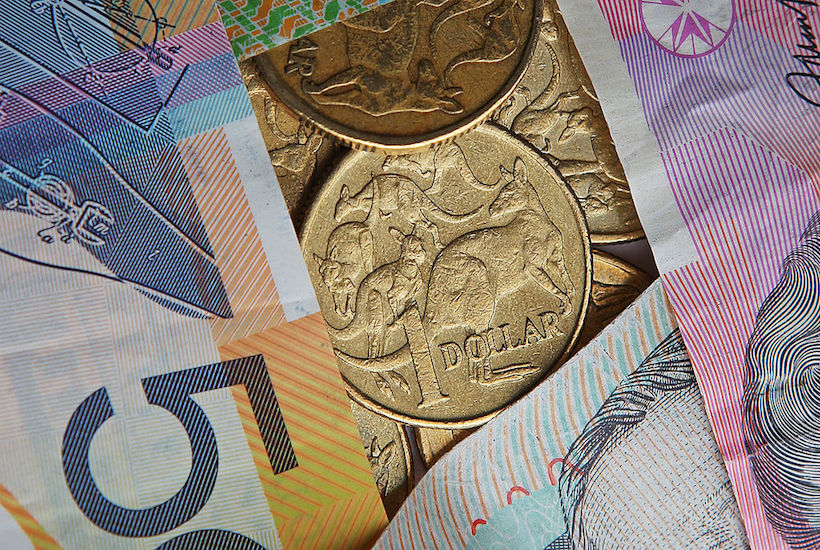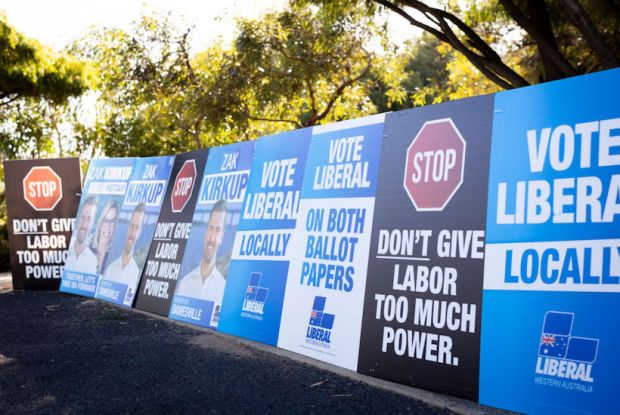The Australian economy has had a rough trot the last twelve months or so: economic growth is slow, unemployment is up, wage growth has stagnated, interest rates have been cut to Sweet Fanny Adams – and if that wasn’t enough – the bushfires and coronavirus fears are pushing an already fragile economy into troubled territory.
Now is the time the government should be doing its best to alleviate pressure on business – take the proverbial foot of its head and give it some room to breathe. Instead, the federal government, in all its wisdom, has decided that another pointless snippet of regulation is just what the business sector needs.
*Palm meets face*
Let me introduce you to the Currency (Restrictions on the Use of Cash) Bill 2019 (Cth).
Though this bill has a seemingly innocuous title, it, in fact, makes it a criminal offence (max 2 years in jail) to enter into a transaction, for an amount equal to or over $10,000, where payment is made or accepted in cash.
That’s right, this bill makes our legal tender illegal over $10,000.
As an Australian of Italian extraction, my little ethnic heart breaks at the slow painful demise of cold hard cash. As my bestie reminisces: “I remember how my nonno’s pockets used to smell like money”. For many post-war European migrants, cash was freedom. When my family came to Australia, they held onto their money tight – partially because they didn’t have much of it and partially because they didn’t trust the banks. For years, we’ve been burying it in Milo tins under the statue of Padre Pio in the backyard. You know, in case of a rainy day.
So, as you can imagine, this bill makes me a little anxious.
The narrative from the government is that this legislation is designed to help crackdown on crime syndicates and terrorist rings dealing in cash and laundering money. Seriously, why bother with cash transactions and dodgy deals when the easiest way to (allegedly) launder money or fund terrorism without detection is to bank with Westpac.
Then, the precis of the bill states that the object of the legislation is to protect the integrity of the Commonwealth Taxation System. If the words ‘integrity’ and ‘taxation system’ in the same sentence aren’t enough to make you snort with derision, it only takes two minutes of basic analysis to work out that you barely need to break into a trot to get around this particularly insipid piece of legislation.
Stay with me here.
First, the people who deal in big cash transactions and who do the right thing will continue to do the right thing. Except as a reward for doing the right thing, the government will penalise them by putting an unnecessary restriction on transacting business. Hello, reduced productivity.
Second, the people who deal in big cash transactions, who do the right thing, and who are frustrated at the continued accumulation of regulation on business might just consider taking off the books large cash transactions which they would previously keep on the books. They might consider a bit of dodgy but easy business is better than losing business altogether.
Third, the people who do the wrong thing will continue to do the wrong thing. No surprises here. Crime syndicates are already engaging in drugs, human trafficking, illegal firearms and violence, so I don’t think this little legal one-liner is going to cause them too much angst in conducting business as usual. I don’t imagine the bikies are suddenly going to start invoicing each other every time they swap drugs for cash. And legitimate business people who transact business with our less savoury types are hardly about to point to the sign on the wall which says ‘sorry, no cash amounts over $10k’.
That’s just laughable.
In my view, the sum total outcome of this bill is as follows: it’s going to make life more difficult for legitimate business, and if anything, it’s going to result in less, not more, funds making their way into government coffers. It’s going to be the coalition’s version of the Gillard government’s MRRT egg-on-face foray into tax legislation driven by ill-conceived policy.
Even after all this, you might ask, why does a legitimate person need to transact in cash over $10,000? Well, ultimately, that doesn’t matter. Why do people wear jeans and joggers? Yes, it defies all logic but it’s legal and they are entitled to do it. Same goes for transacting in big cash sums – it might seem unnecessary but legal tender should be legal. End of story. Because once we start restricting the use of cash, the pertinent question becomes: where do we go to from here? Will the next step be criminalising possessing cash amounts over $10,000? For my mind, it hands too much power to the government and the banks and takes away from the little people the little power they have – the ability to pay for what they want, when they want, and how they want.
This bill goes against everything the Liberal Party is meant to stand for: it’s illiberal, counterproductive, and a further unnecessary burden on legitimate business. It needs to be binned.
Caroline Di Russo is a lawyer, businesswomen and unrepentant nerd.
Got something to add? Join the discussion and comment below.
Got something to add? Join the discussion and comment below.
Get 10 issues for just $10
Subscribe to The Spectator Australia today for the next 10 magazine issues, plus full online access, for just $10.


























Comments
Don't miss out
Join the conversation with other Spectator Australia readers. Subscribe to leave a comment.
SUBSCRIBEAlready a subscriber? Log in